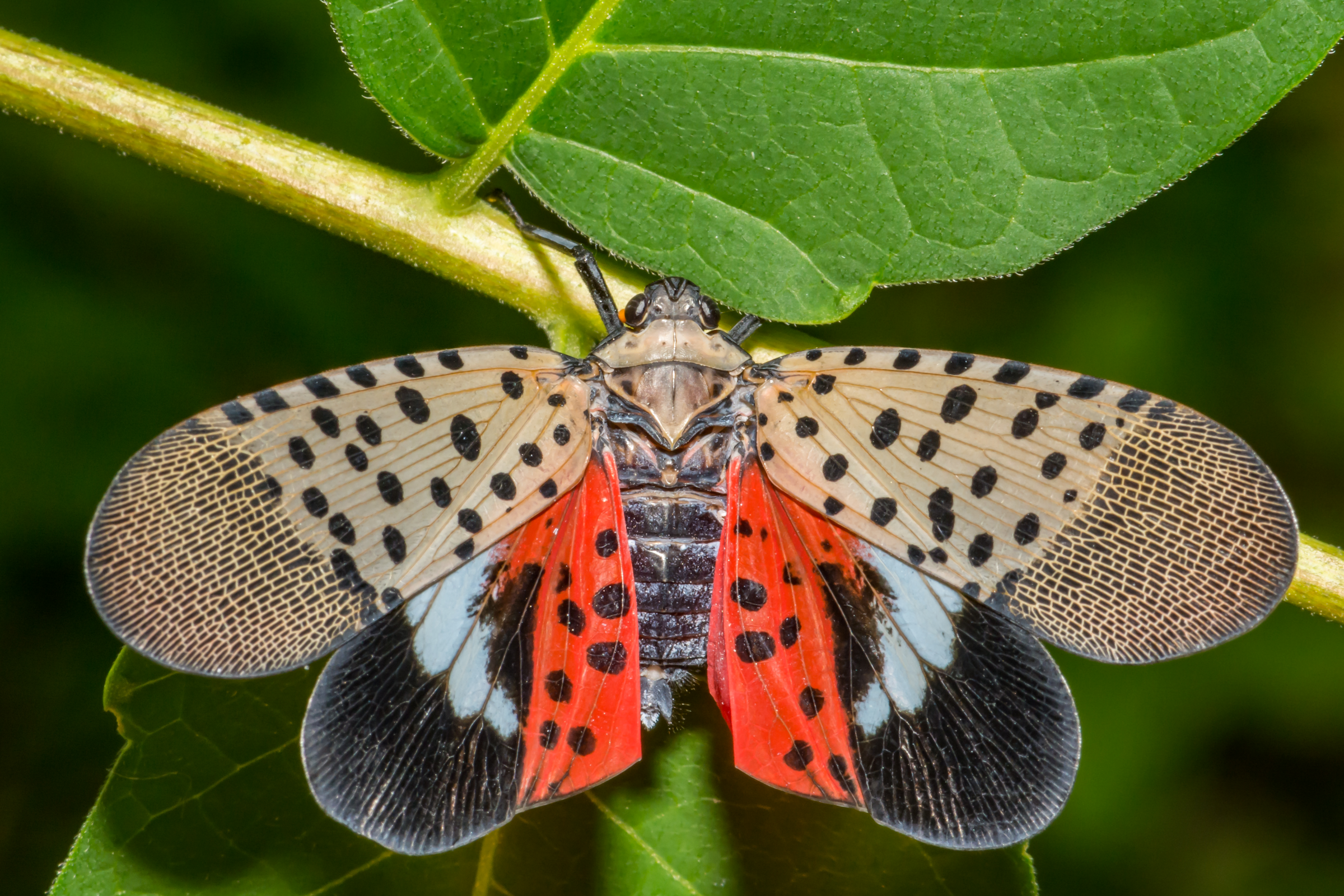Critical invasive species now spotted in Kentucky
Critical invasive species now spotted in Kentucky


A pest that can disrupt the state's natural environment and inflict havoc on multiple industries has entered Kentucky. The first spotted lanternfly was discovered in Gallatin County. This invasive species could have severe repercussions for the state's economy and quality of life if not controlled.
Scientifically referred to as Lycorma delicatula, the spotted lanternfly is a rapacious feeder that attacks more than seventy distinct host plants.
"Spotted lanternfly could pose problems for Kentucky grape producers, those working in the hardwood industry, growing apples or hops," said University of Kentucky Department of Entomology assistant professor Jonathan Larson. "These sap-sucking pests also create a sticky mess with their fecal material, called honeydew, which can create big messes on residents' property."
Honeydew is a byproduct of the spotted lanternfly. The insect secretes the syrupy substance during feeding, resulting in the development of black sooty mildew. In addition to harming vegetation, this sugary fecal material may entice stinging insects. Although the immediate impacts on woodland regions might not be as conspicuous as those in agricultural environments, the additional lanternfly strain imposed on the resources of trees may deteriorate their health.
"Eggs are being laid right now in infested areas," Larson said. "It’s possible that adults could lay their eggs on cars, trucks, trains and other modes of transportation that come to Kentucky. Their egg patches look like smears of mud and won’t hatch until next spring."
Correctly identifying these insects is important because they resemble numerous important native species.
Adult lanternflies are distinguished by stripes and spots on their front wings and a vivid red hue on their rear wings, contrasting their bodies, predominantly colored in white, black and khaki.
Insecticide treatment of potential host trees and eradication of preferable hosts, such as the invasive Tree-of-Heaven, can be employed by professionals to mitigate the transmission of these organisms.
The rapid-growing Tree-of-Heaven can establish itself in both woodland and urban environments, outcompeting native species. Although it is frequently encountered in polluted urban zones, roadside areas and railroad tracks, it can also infiltrate natural habitats, particularly in wooded regions following harvests. The Tree-of-Heaven can rapidly colonize and establish dense stands due to the wind-borne spores it carries, providing a growing environment for the spotted lanternfly.
“Tree-of-Heaven and the spotted lanternfly have range overlap in the areas they are native to,” Larson explained. “Further, the types of areas where Tree-of-Heavens pop up can overlap with areas where the spotted lanternfly may be introduced. They prefer to feed on Tree-of-Heaven as older nymphs and as adults.”
Infested regions may be subject to quarantines and permits, in addition to restrictions on the movement of products like lumber.
If residents see a suspected spotted lanternfly, send a picture to reportapest@uky.edu and include the county.
"With citizens' cooperation and help, it will help us to track this pest’s invasion into the state and maybe even slow it down," Larson said.
– 30 –
The Martin-Gatton College of Agriculture, Food and Environment is an Equal Opportunity Organization with respect to education and employment and authorization to provide research, education information and other services only to individuals and institutions that function without regard to economic or social status and will not discriminate on the basis of race, color, ethnic origin, national origin, creed, religion, political belief, sex, sexual orientation, gender identity, gender expression, pregnancy, marital status, genetic information, age, veteran status, physical or mental disability or reprisal or retaliation for prior civil rights activity.
Entomology

